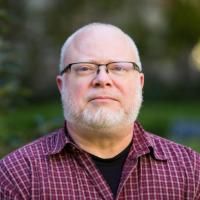Demographic and Socioeconomic Disparities in Life Expectancy With Hearing Impairment in the United States.
Date
2021-04
Authors
Editors
Journal Title
Journal ISSN
Volume Title
Repository Usage Stats
views
downloads
Citation Stats
Abstract
Objectives
Hearing impairment is one of the most common disabilities among older people, and its prevalence will increase as the U.S. population ages. However, little is known about social disparities in onset or transitions into and out of hearing impairment, nor how these transitions impact years of life to be spent impaired.Method
We investigate the number of years an "average" person can expect to live with and without hearing impairment after age 50; sex, race, educational, and regional differences in these expectancies; and the implication of hearing impairment for remaining life expectancy. Bayesian multistate life table methods are applied to 9 waves of data from the Health and Retirement Study (1998-2014) to investigate social disparities in life expectancy with hearing impairment (n = 20,200) for the general population, people hearing impaired at age 50, and people hearing unimpaired at age 50.Results
Men, Hispanics, persons with less educational attainment, and those born in the south can expect to live a larger proportion of their remaining lives hearing impaired. Although transitions from hearing impaired to unimpaired occur, those with some hearing impairment at age 50 can expect to live more years with hearing impairment, and hearing impairment does not shorten remaining life expectancy.Discussion
Significant sociodemographic disparities in hearing impaired life expectancy exist. In contrast to past research, we find that hearing impairment does not affect total life expectancy. Future research should consider the consequences of hearing impairment for years to be lived with other age-related and potentially downstream health outcomes.Type
Department
Description
Provenance
Citation
Permalink
Published Version (Please cite this version)
Publication Info
West, Jessica S, and Scott M Lynch (2021). Demographic and Socioeconomic Disparities in Life Expectancy With Hearing Impairment in the United States. The journals of gerontology. Series B, Psychological sciences and social sciences, 76(5). pp. 944–955. 10.1093/geronb/gbaa166 Retrieved from https://hdl.handle.net/10161/28652.
This is constructed from limited available data and may be imprecise. To cite this article, please review & use the official citation provided by the journal.
Collections
Scholars@Duke

Jessica Sayles West
Jessica is a medical sociologist who specializes in research on hearing loss, aging, and health disparities over the life course. Jessica’s work has described the “spillover” effects of hearing loss on health outcomes for both individuals and those close to them, as well as sociodemographic disparities in the onset of and life expectancy with hearing loss. Her research, which leverages both population-level data and electronic health record data, has appeared in the Journals of Gerontology, Social Science & Medicine, Ear and Hearing, and other leading journals in medical sociology, hearing, and aging research.
Jessica received a B.A. from the University of Michigan in Social Anthropology (dual Sociology/Anthropology concentration) followed by an M.P.H. in Sociomedical Sciences with a certificate in Public Health Research Methods from Columbia University’s Mailman School of Public Health. She subsequently received an M.A. and Ph.D. in Sociology with a focus in Medical Sociology and Demography at Duke University. She then completed an NIA T32 Postdoctoral Fellowship at the Duke University Aging Center under the mentorship of Matthew E. Dupre, Ph.D. (Population Health Sciences) and Sherri L. Smith, Au.D., Ph.D. (Head and Neck Surgery & Communication Sciences).

Scott Michael Lynch
Unless otherwise indicated, scholarly articles published by Duke faculty members are made available here with a CC-BY-NC (Creative Commons Attribution Non-Commercial) license, as enabled by the Duke Open Access Policy. If you wish to use the materials in ways not already permitted under CC-BY-NC, please consult the copyright owner. Other materials are made available here through the author’s grant of a non-exclusive license to make their work openly accessible.
